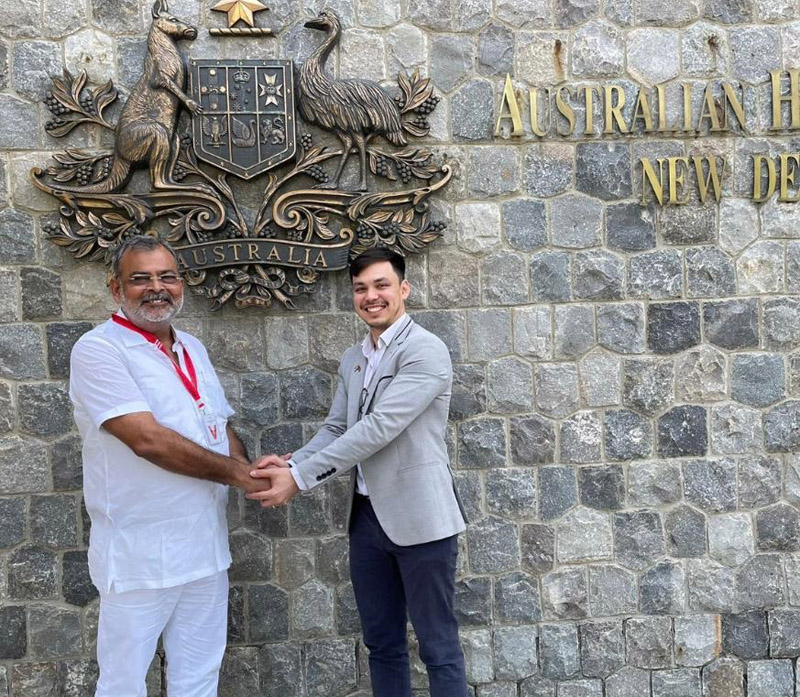Excelsior Correspondent
NEW DELHI, Sept 29: Chairman Wool & Woollen Export Promotion Council (WWEPC) of Union Ministry of Textiles, Romesh Khajuria held a meeting with Dr. Richard Nail, First Secretary (Agriculture), at Australian High Commission here today and discussed the upcoming visit of Australian wool delegation to India.
Khajuria emphasizing on mutual benefits which the visit may bring to wool sectors of both the countries. Dr. Richard underlined the importance of bilateral cooperation in agriculture and textiles.
A handout stated that purpose of the visit is to explore investment opportunities in wool processing infrastructure within India.
With a growing demand for woollen products in Indian market, approximately 130 million kg of raw wool is required by Indian woollen industry, both for domestic consumption and export.
Currently, India imports around 90 million kg of wool from various countries, with a significant portion coming from Australia, along with other key suppliers like China and New Zealand.
In an effort to strengthen bilateral ties and explore new avenues for collaboration, an Australian delegation comprising experts and stakeholders of wool industry is slated to visit India to explore investment opportunities in wool processing infrastructure within India.
Khajuria’s optimism regarding this collaboration underscores the substantial mutual benefits that can be harnessed by Indian and Australian wool sectors.
He highlighted that Australia can play a vital role in aiding Indian wool growers in improving both the quantity and quality of wool production through knowledge sharing and capacity-building initiatives.
Khajuria highlighted that the export of wool and wool-blended products (excluding woollen carpets and floor coverings) during 2022-23 was US$ 639.12 million, as compared to US$ 561.78 million in 2021-22, according to Department of Commerce, marking a growth of 14 per cent in 2022-23.
The total export of woollen products, including carpets, amounted to US $ 1,300 million. He also stated that global consumer’s preference for eco-friendly and sustainable products present an advantage for India’s woollen sector.


